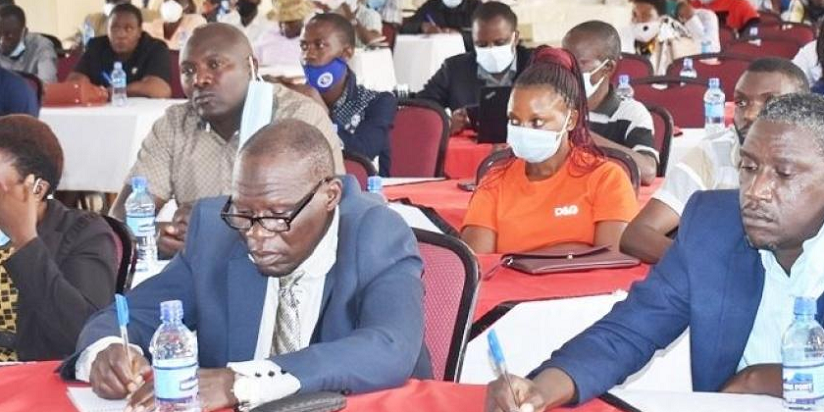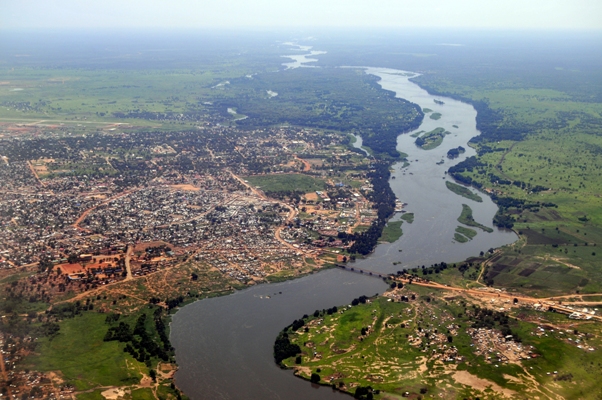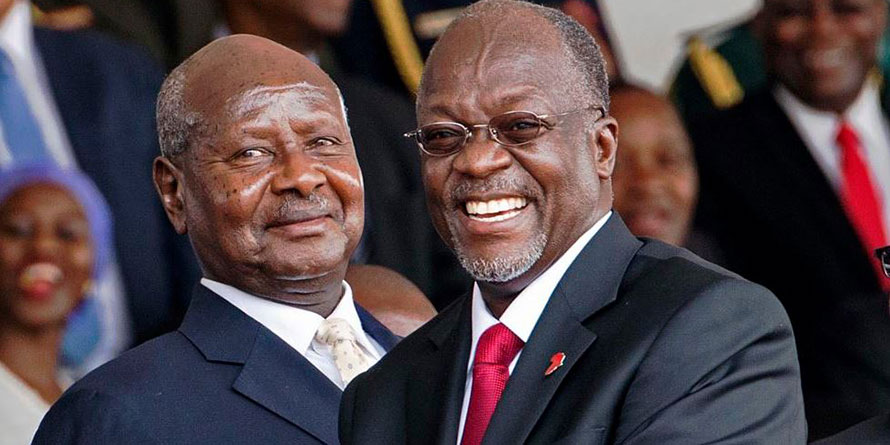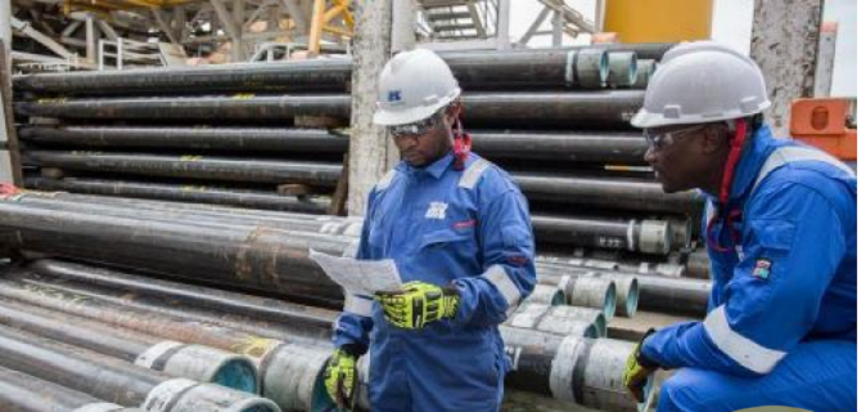PAPs, Small and Medium Enterprise owners attending a meeting in Masaka to enhlighten them about the available opportunities in the oil and gas sector
The Petroleum Authority of Uganda (PAU) and Total Energies- Uganda, and East African Crude Oil Pipeline officials have embarked on training people affected by the project (PAPs), farmers, small and medium enterprises in the ten pipeline districts on how they can tap into the available opportunities during the construction of the pipeline.
This follows Final Investment Decision (FID) which was announced by Total Energies and China National Offshore Oil Company (CNOOC) on Tuesday confirming their readiness to start the drilling and crude oil pipeline projects.
The pipeline will cover 1,443km from Hoima District in Uganda to Tanga in Tanzania. In Uganda, will traverse ten districts of Hoima, Kikuube, Kakumiro, Kyankwanzi, Gomba, Mubende, Lwengo, Sembabule, Kyotera and Rakai. In Tanzania, it will cover a distance of 1,147km, through the eight regions of Kagera, Geita, Shinyanga, Tabora, Singida, Dodoma, Manyara, Tanga.
According to Peter Kenneth Bintu, the Enterprise Officer – PAU, the project will boost Uganda’s economy and improve people’s livelihoods in different ways. He explains that the government ring-fenced 16 sectors to benefit the local people in the communities where the pipeline will pass. He says they expect to set up five camps with a minimum of five thousand people.
He adds that the PAU has come out to make the public aware of the available opportunities which they can benefit from for the four years of the pipeline construction. Bintu explains that individuals and well-organised groups can invest in supplying agricultural produces, civil works such as construction, transport, human resource services, health, housing, tourism and the like.
He explains that they are advising farmers to form cooperative groups that can be able to supply large quantities consistently. Bintu noted that there will be areas that grow as a result of the oil and gas sector due to the influx of the companies and there will be high demand for office space, accommodation, warehouse, recreation and tourism.
He further mentions that there will be a need for over 600 trucks for the Tilenga and Kingfisher projects and about 300 trucks for the EACOP since they expect over seven million tons of product to be transported. He further noted that much as these opportunities are ring-fenced for Ugandans, the quality standards will not be lowered and failure to be able to supply the required items may force the contractors to hire foreign companies to do the job successfully.
The PAU contracted Stanbic Bank Business Incubator Ltd to conduct the training. According to Tony Otao Okoa, the Chief Executive Officer of the program, they have already given out forms to the District Commercial Officers for distribution. He adds that they will train 200 small and medium enterprises mainly farmers and agribusiness dealers based on the number of slots that will be applied for the free training.
He noted that the EACOP project is the first opportunity in Uganda urging the communities in the pipeline route should utilise the opportunity before it’s too late. He says that the training is geared towards accessing markets, improving the quality of products, and trying to link them with the companies which already secured contracts with Total.
Much as there are still issues to do with the delayed compensation, Christopher Manzi, the Global Rights Alert Official, says they are arranging different symposiums to enlighten communities about the available opportunities before it’s too late.
Godfrey Mutemba, the Lwengo District Natural Resources Officer and EACOP focal person says that the FID is enough indication that things may move so fast and urged the residents to collect the forms from the District commercial officers in time.
Olivia Nankunda, a milk dealer, and Brian Muwonge, a PAP from Gomba district, say that the information about the opportunities excited them adding that they are to form and register their cooperatives to be part of the training.
–URN





